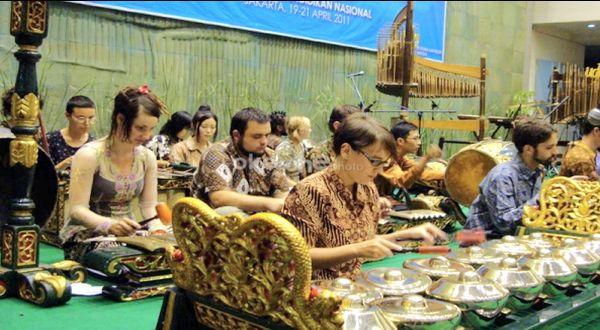As I’d Like to Call Myself: A Proud Hardworking Indonesian
- Ester Retta Uly Siregar (Ester Skiera)
- Sep 9, 2015
- 3 min read
My 7-year-old daughter once asked me, “Are you still Indonesian, even though you’re married with daddy and have us?” I answered, “Yes, I’m still Indonesian. It’s hard for me to change citizenship because I cannot think of myself as anything but Indonesian.”
I’m not easily proud of my nationality. I refuse to go with ‘false patriotism’ used by so many politicians for their political interest. I feel patriotism should not just about being proud. It’s more how we represent our nation on daily basis, without being afraid to acknowledge that we posses bad habits that have morphed into a culture (think of Indonesians who throw garbage off their car window), but we try to change it for the better anyway.

When you live abroad, you’re an ambassador of your country. I’m recently hired as a faculty associate for some state university. Teaching undergrad students is very intimidating, not to mention the language barrier. No matter how good my English can be, I’m still lost sometimes. From pronunciation, tone, and funny dialect, they all lead to distinguish quite a difference between a native speaker and myself.
First day of teaching, I almost passed out from being nervous. But we Indonesians don’t give up easily, especially when you’re not born with a silver spoon in your mouth. We’re taught to be hard on ourselves, to survive, and at the end: to thrive. So, I practice every day by using dictionary app to learn how to pronounce unfamiliar words. Do I make it? Not quite so. After 32 years living in Indonesia, it’s hard to kill dialect. It’s there and it makes you different. But does it stop me from teaching? Hey, I might not able to say “deterioration” perfectly, but I know what it means. And that’s what matters.

The thing about us Indonesians, we’re very grateful. We see so many unfortunate people around us back home, so when offered an opportunity, we take it very seriously. Being an Indonesian in America means being a minority. Being minority leads to some specific problems that make us either giving up or working harder. Giving up is not really an option. If I wanted to give up, I’d rather go home. At least back home I’d be able to do it while eating comfort foods and getting a massage from si Mbak. But here, you just have to work really hard.
I’m proud of my being Indonesian because I’m different. I’m a representation of Indonesians living in America: persistent, tough, and strong. And that alone is really something to be proud of, apart from tons of other usual things: I come from a majestic country with thousands of beautiful islands, the sun is bright, and the people are diverse, cultural, and religious.
There are too many good things that make Indonesia irreplaceable; the good things that stop me to change my citizenship, even after almost of a decade living out of the country. And that’s what I call being truly proud.
Ester Skiera (also known as Uly Siregar) is a former journalist turned housewife. She is a mother of three beautiful mixed-race daughters and finds herself doing three part time jobs—all related to staring at computer for long hours--on daily basis. She’s determined to make her American family love Indonesia through the dishes, which seems to work well. Her oldest daughter is a big fan of pempek, and her American husband loves her homemade soto ayam the best.

















Comments